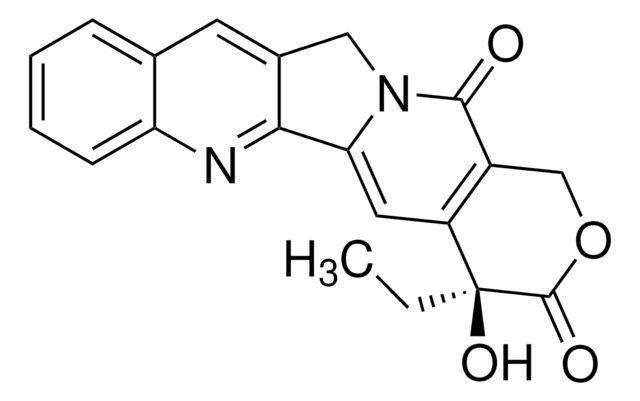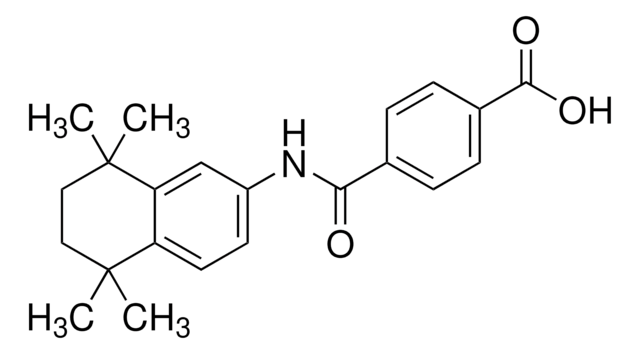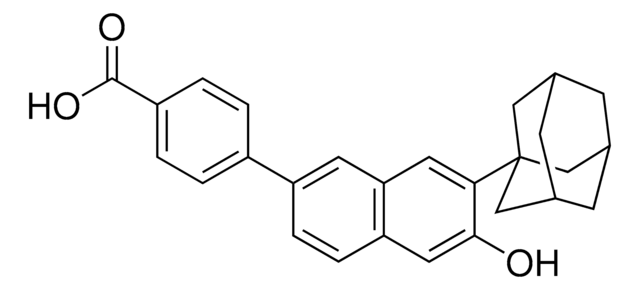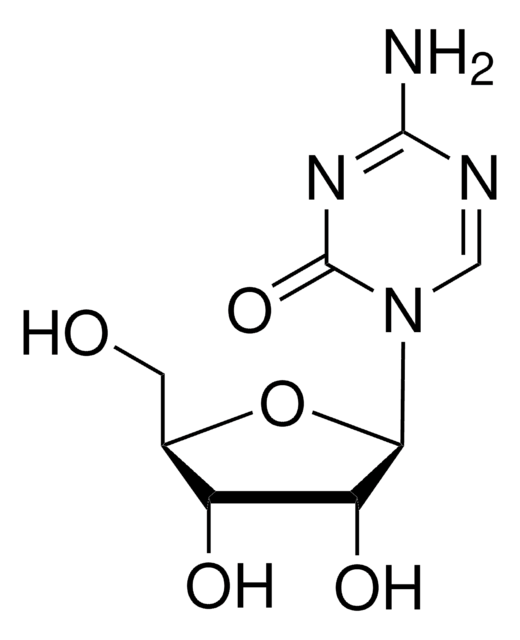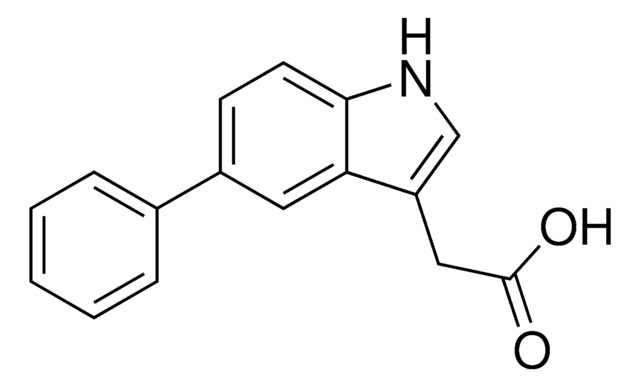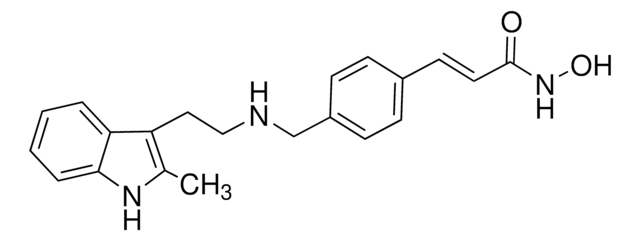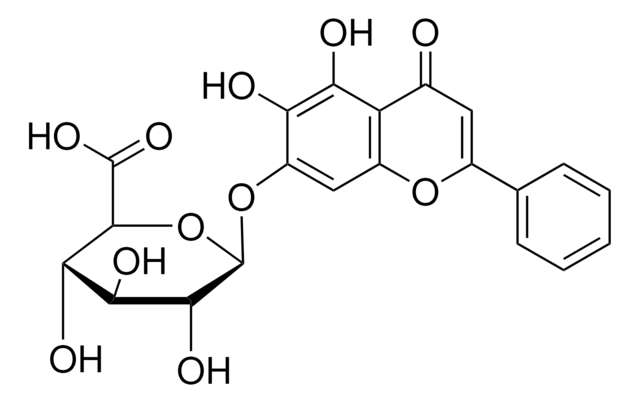C5865
CD437
≥98% (HPLC), solid
Synonym(s):
6-[3-(1-Adamantyl)-4-hydroxyphenyl]-2-naphthalene carboxylic acid, AHPN
About This Item
Recommended Products
Assay
≥98% (HPLC)
form
solid
impurities
~0.5 mol/mol water
color
yellow
mp
271.6-276 °C
solubility
DMSO: >10 mg/mL
H2O: insoluble
storage temp.
−20°C
SMILES string
OC(=O)c1ccc2cc(ccc2c1)-c3ccc(O)c(c3)C45CC6CC(CC(C6)C4)C5
InChI
1S/C27H26O3/c28-25-6-5-22(20-1-2-21-11-23(26(29)30)4-3-19(21)10-20)12-24(25)27-13-16-7-17(14-27)9-18(8-16)15-27/h1-6,10-12,16-18,28H,7-9,13-15H2,(H,29,30)
InChI key
LDGIHZJOIQSHPB-UHFFFAOYSA-N
Gene Information
human ... RARA(5914) , RARB(5915) , RARG(5916)
Biochem/physiol Actions
Storage Class Code
11 - Combustible Solids
WGK
WGK 3
Flash Point(F)
Not applicable
Flash Point(C)
Not applicable
Personal Protective Equipment
Certificates of Analysis (COA)
Search for Certificates of Analysis (COA) by entering the products Lot/Batch Number. Lot and Batch Numbers can be found on a product’s label following the words ‘Lot’ or ‘Batch’.
Already Own This Product?
Find documentation for the products that you have recently purchased in the Document Library.
Articles
All-trans retinoic acid (RA, ATRA) is a pleiotropic activation factor that regulates genes associated with normal vertebrate cellular processes such as cell differentiation, cell proliferation, apoptosis, and embryonic development.
Our team of scientists has experience in all areas of research including Life Science, Material Science, Chemical Synthesis, Chromatography, Analytical and many others.
Contact Technical Service

